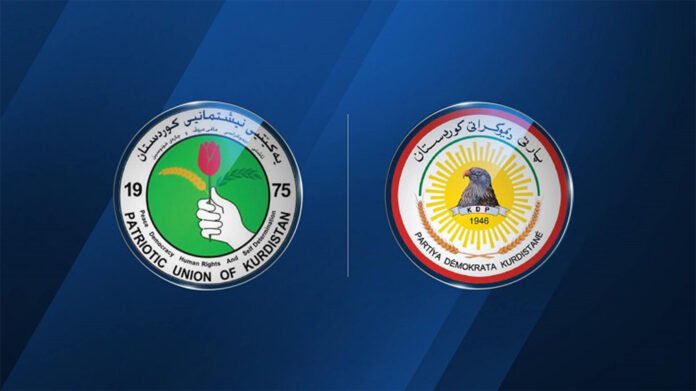The Kurdistan Democratic Party (KDP) and the Patriotic Union of Kurdistan (PUK) are preparing for a pivotal meeting this week. Their goal is clear: form a new Kurdistan Regional Government (KRG) cabinet before Iraq’s federal elections in November. The push to complete the process comes after months of political delay.
According to a senior PUK official, the upcoming discussions will focus solely on cabinet formation. With recent progress on salary payments and reduced tensions between Erbil and Baghdad, attention has shifted fully toward building the new government. Both parties recognize the urgency and are dedicating all efforts to finalizing a deal.
The meeting will follow recent high-level talks between KDP leader Masoud Barzani and PUK leader Bafel Talabani. Those discussions addressed the prolonged cabinet delay and included the exchange of draft proposals. While no final resolution emerged, both sides expressed readiness to move forward.
Pressure is mounting. The Iraqi federal parliamentary elections are scheduled for November 11. Both Kurdish parties agree that a stable KRG government must be in place before that vote.
The last Kurdistan Region parliamentary election was held in October, after multiple delays. The KDP secured 39 out of 100 seats, while the PUK won 23. With no single party holding a majority, coalition-building remains essential—just as it has been in previous KRG governments.
Prime Minister Masrour Barzani confirmed in June that the KDP and PUK had agreed on the general framework for the new cabinet. He also said that other parties are welcome to join the coalition. However, nine months have passed since the vote, and Kurdistan still lacks a functioning new cabinet.
This prolonged deadlock has frustrated voters and slowed key policy decisions. Public expectations are rising, especially with salaries, oil exports, and governance challenges still fresh in public memory.
The stakes are high. A unified government could help stabilize relations with Baghdad and improve public trust. On the other hand, more delays risk weakening Kurdish representation in federal negotiations and damaging internal unity.
As both parties head into another round of talks, the spotlight is on compromise and cooperation. If KDP and PUK leaders can finalize a coalition, they may finally break the political stalemate. With time running short before Iraq’s national elections, the coming week could prove decisive for the future of the Kurdistan Region.

